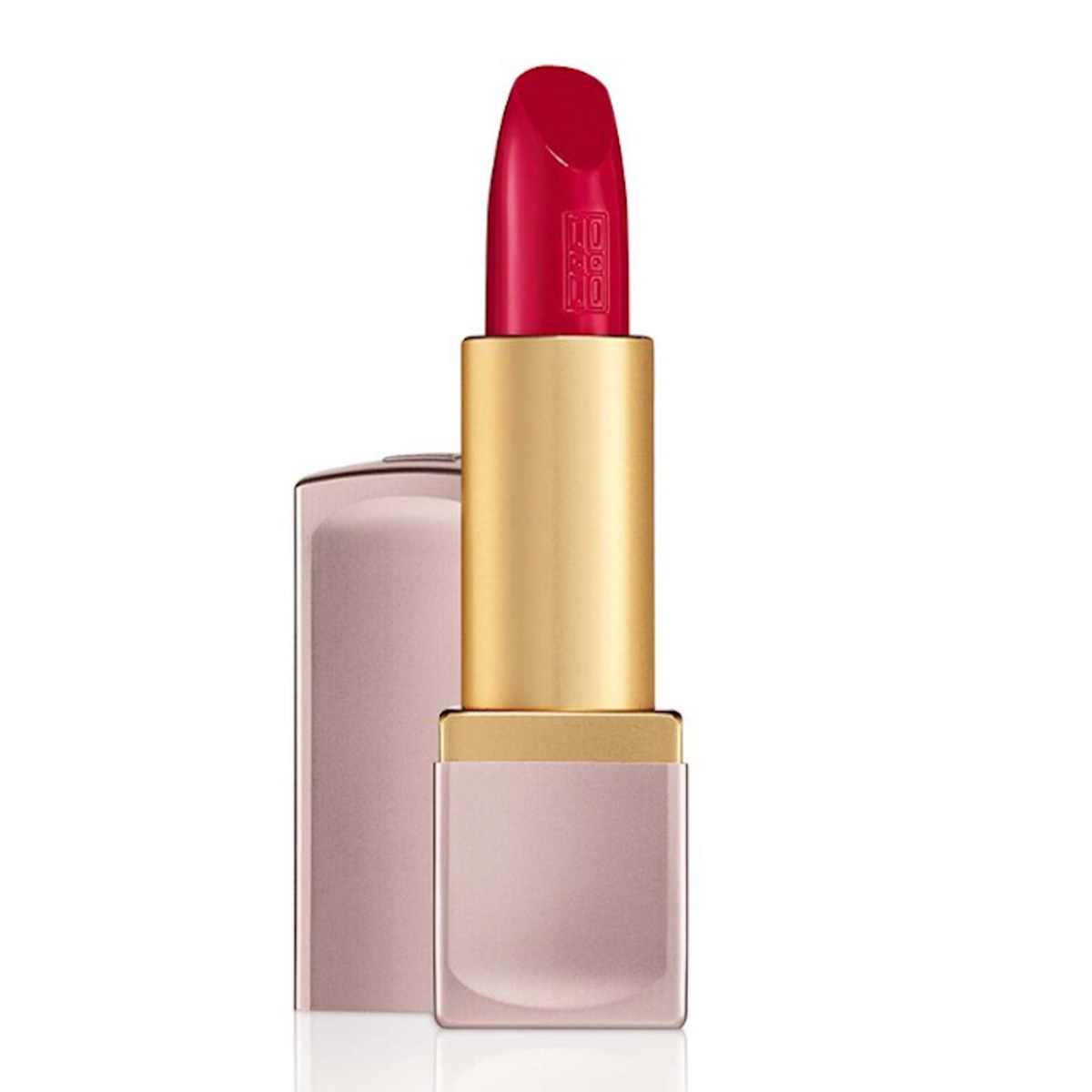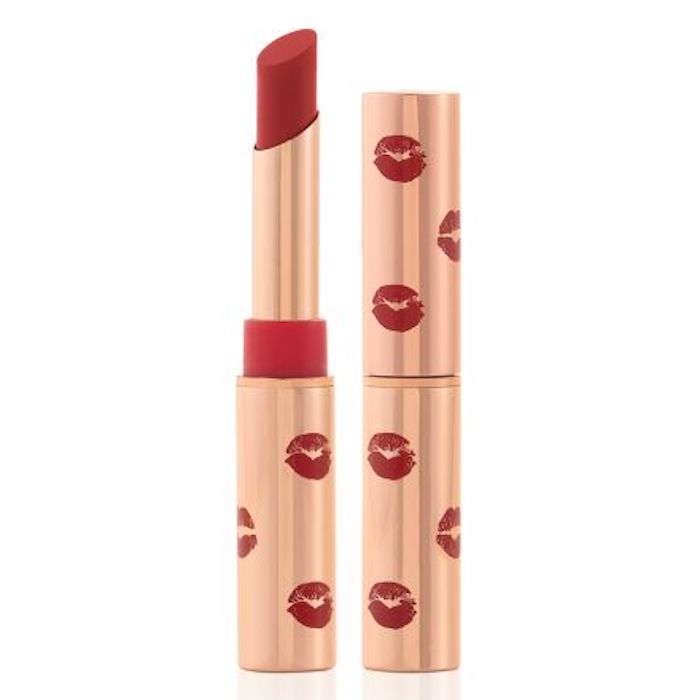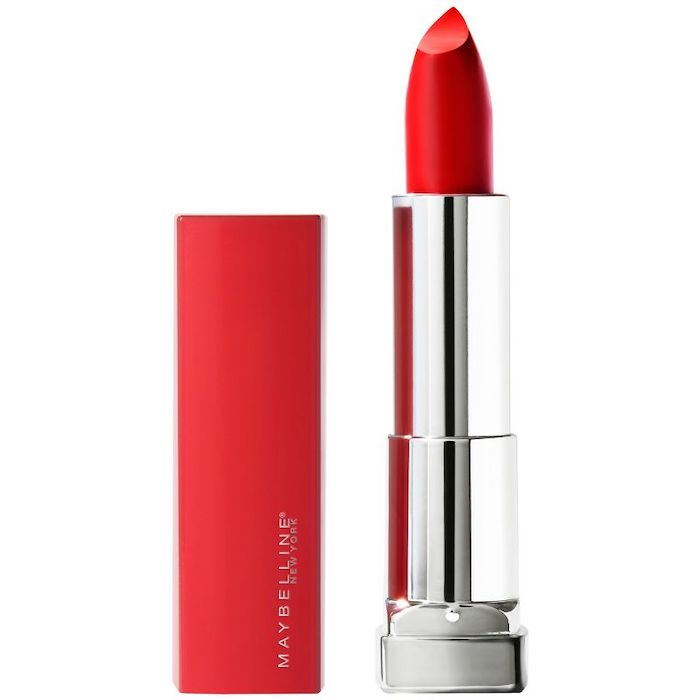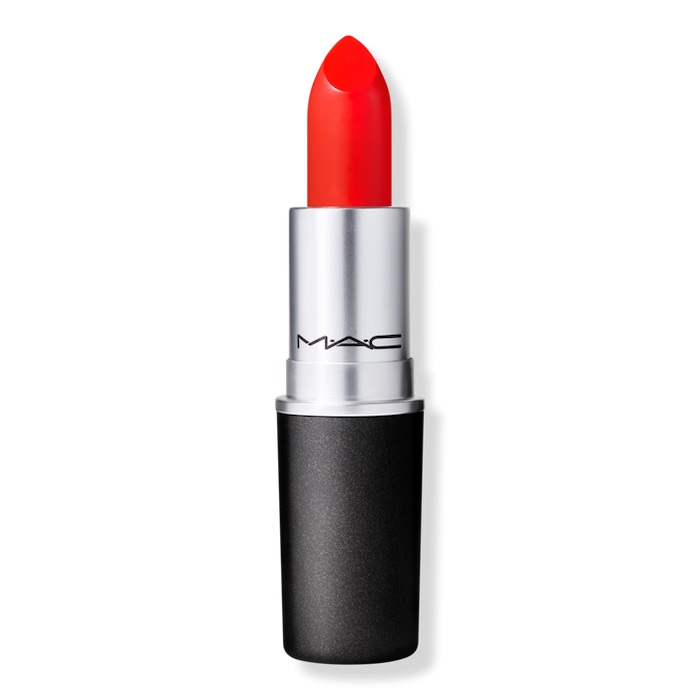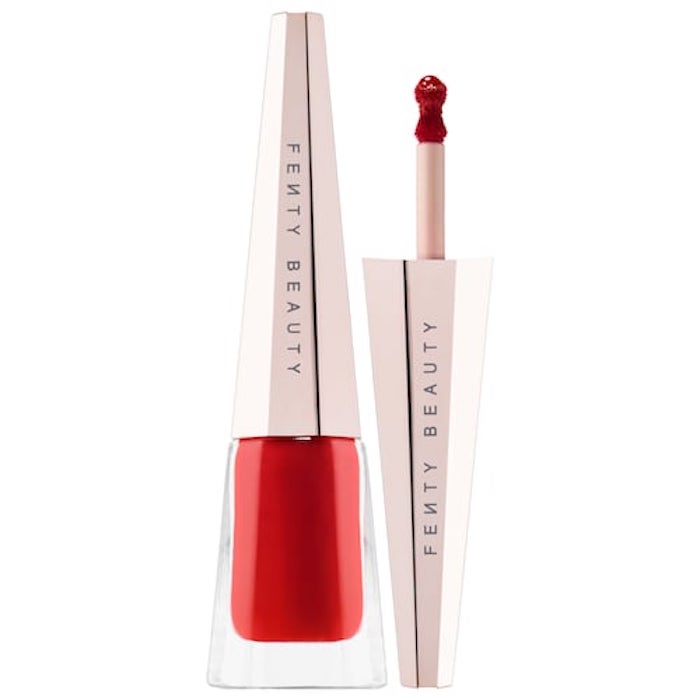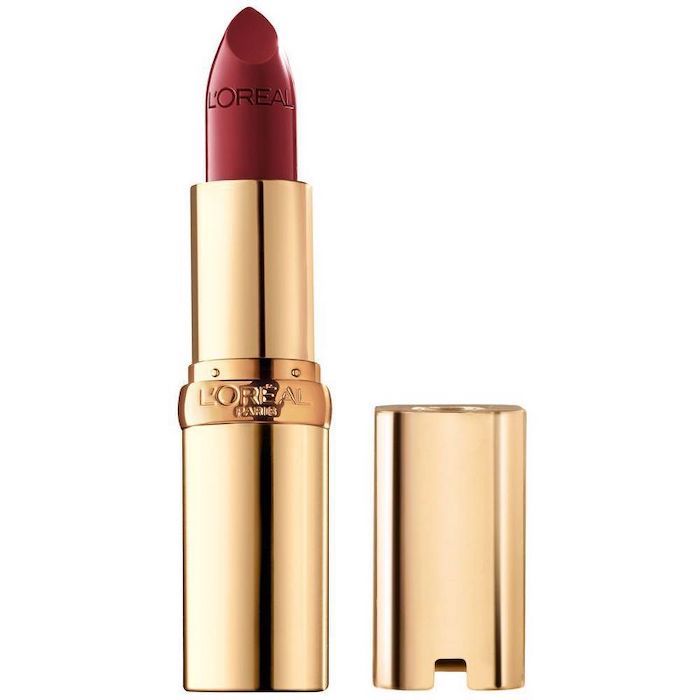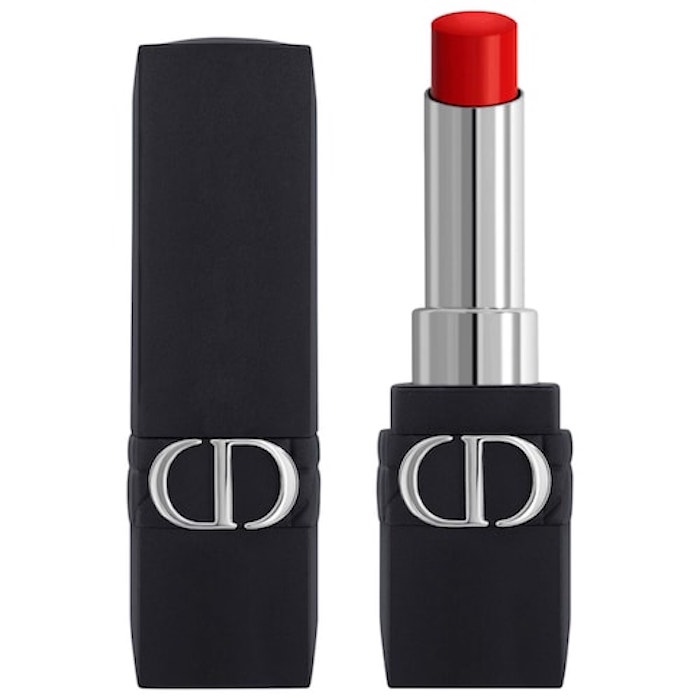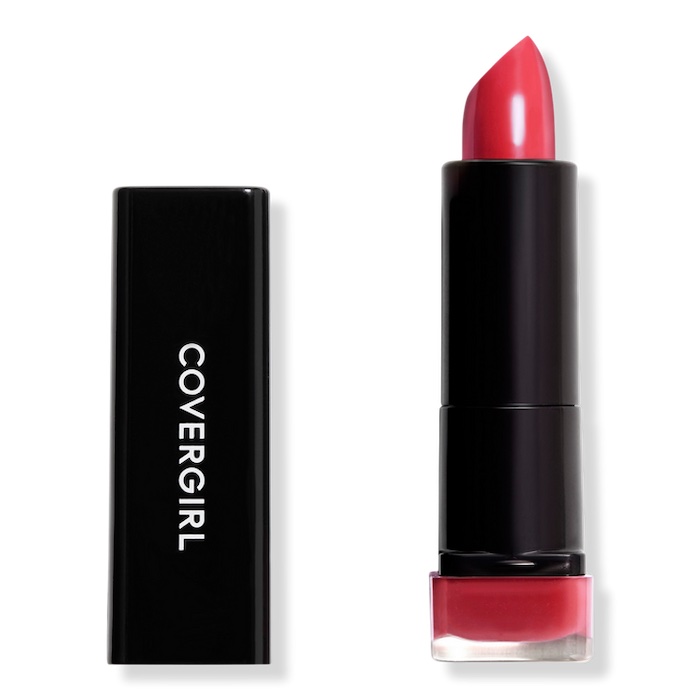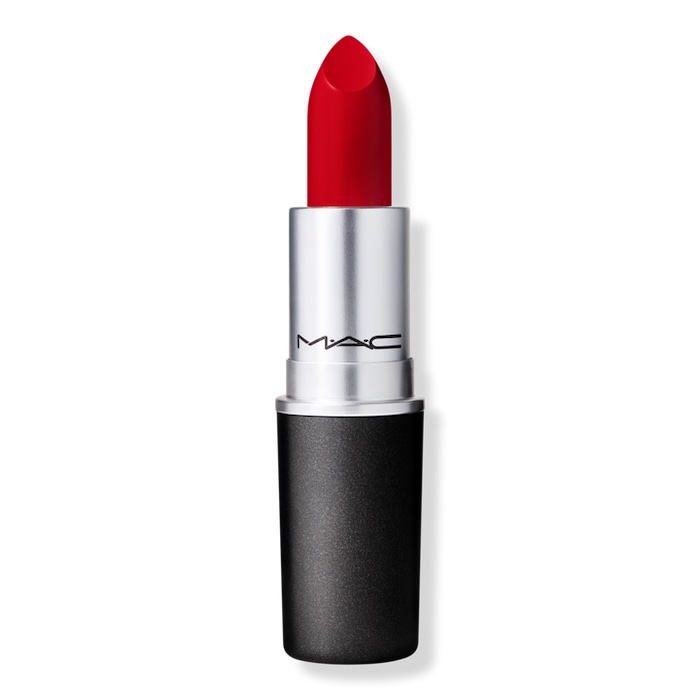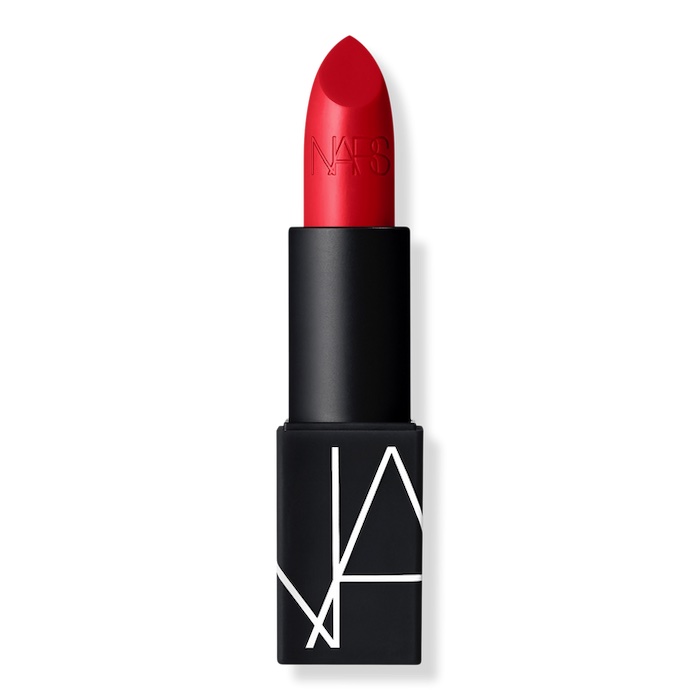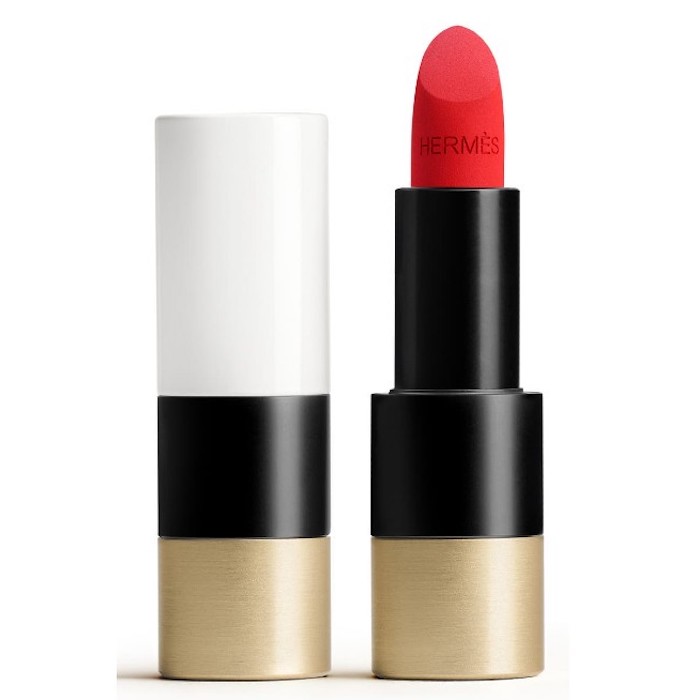How Red Lipstick Has Epitomized Defiance Throughout History

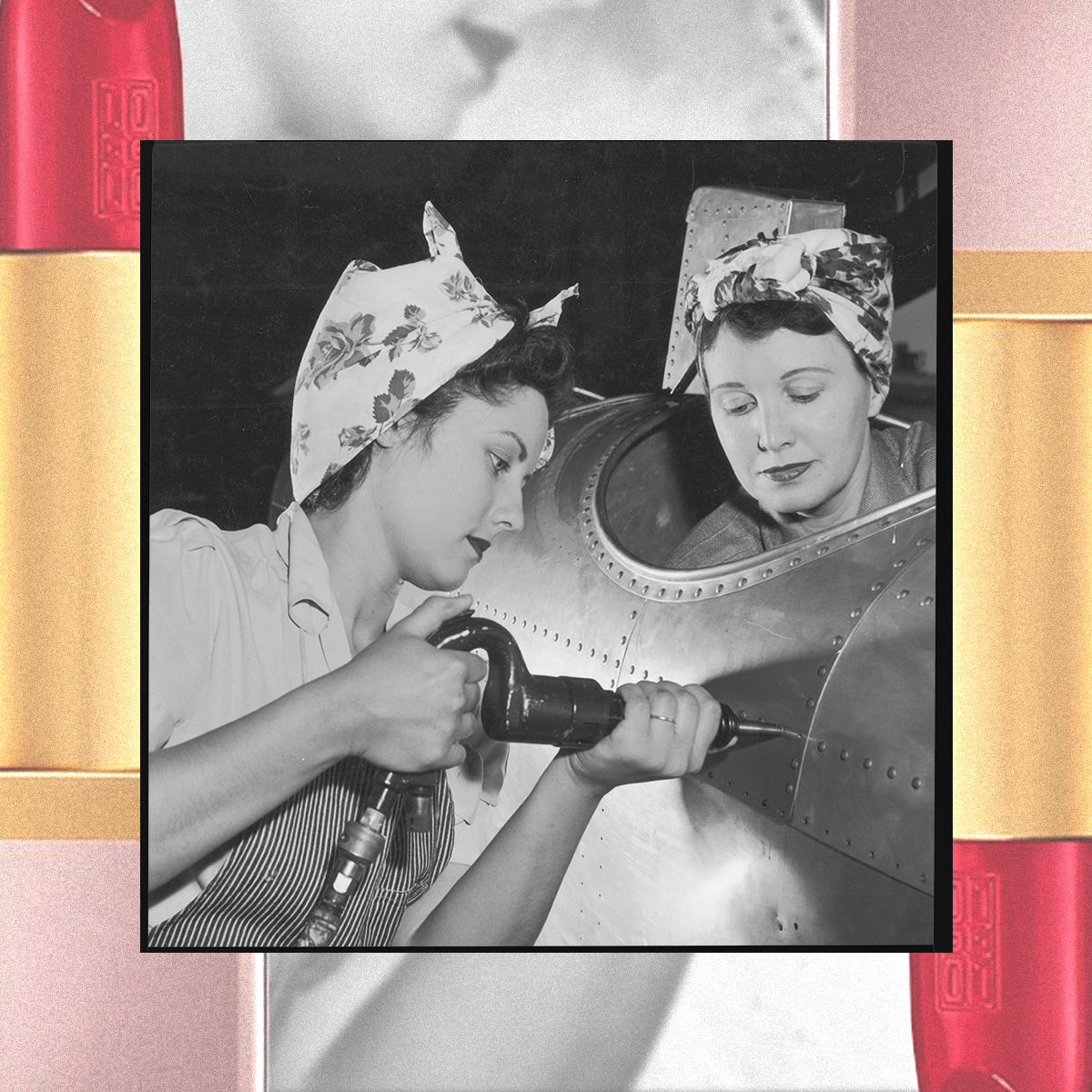
Today, red lipstick is associated with many things. It's associated with confidence, which is why some people swipe on their favorite shade of red ahead of a big presentation at work. It's associated with romance, which is why it's the go-to shade for so many people come date night. It's also associated with the classic French-girl look. Pairing a bold red lip with bare skin and natural eyes creates something that's at once both elevated and effortless. (This is the oxymoron that's kept the world fascinated by French beauty for decades, but I digress.)
These associations we have with red lipstick aren't random. Do a little digging, and it becomes increasingly evident that red lipstick has symbolized boldness, individuality, and, most importantly, defiance for millennia. One of the most interesting yet ambiguous examples of this is said to have taken place during women's suffrage, when suffragists allegedly wore red lipstick to reflect their unity and protest. While the history is, at times, murky, the point remains the same: Red lipstick is more than makeup. Ahead, learn all about its empowering history, extending from the ancient world to the modern day.
Ancient Civilizations
To understand red lipstick and the power it holds in the modern era, we have to trace it back to its origins (I'm talking thousands of years ago). "You can find red lipstick in Ancient Sumer, Egypt, China, etc.," says Erin Parsons, celebrity makeup artist and beauty expert. "There’s a Minoan fresco featuring a woman wearing lipstick, a papyrus from ancient Egypt [depicting someone] applying a lip rouge using a brush, and of course, you can’t forget the bust of Nefertiti."
Back then, people used natural pigments from the earth and plants to create the cosmetic. "During the Zhou dynasty in China, we see the use of cinnabar pigment for red lipstick, which continued into the Tang and Han dynasty," Parson explains. "The makeup styles and shape of lips changed throughout these eras. In ancient Egypt and Sumer, red ochre would have been used to create red pigments used in cosmetics. This was actually found in cockle shells near Queen Puabi's grave at Ur. Surprisingly, we still see the use of this same iron ore in makeup today. Although, now it’s more often synthetically created."
The Victorian Era
Fast-forward to the Victorian era (approximately 1837 to 1900), and red lipstick didn't have the same positive associations that it does now, which explains why the look was all about sheer and subtle color. "To be obviously painted in the Victorian era would have been seen as someone of low morals," Parsons says. "If women used lip rouge, they did it quite subtly by creating a tinted lip salve mostly made from ingredients in the kitchen."
The Early 20th Century
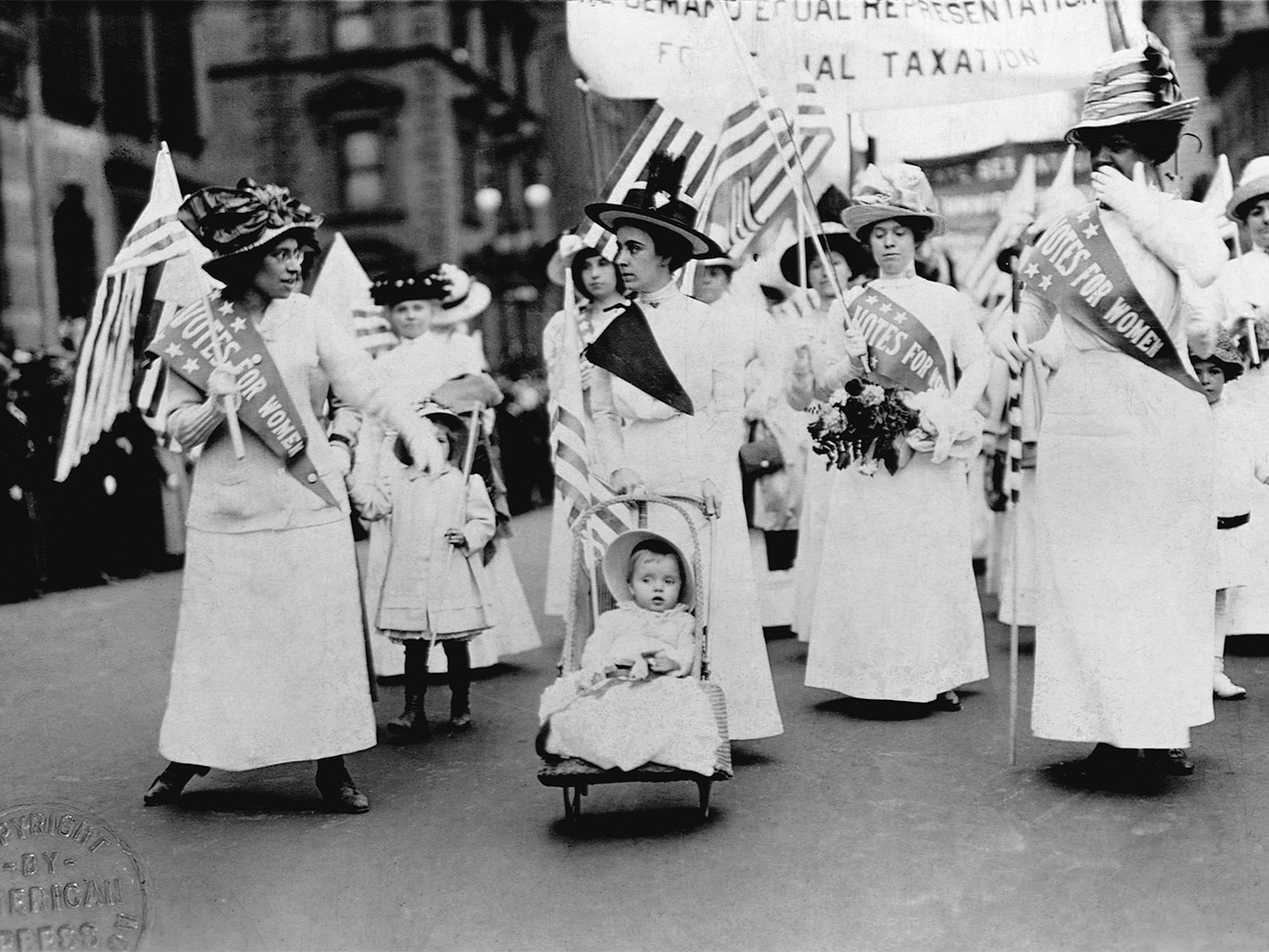
This is when things really get interesting. Legend has it that women who were marching and protesting for the right to vote wore red lipstick to symbolize their mission and further the fight. More specifically, it's said that Elizabeth Arden, the businesswoman and boundary-pushing beauty savant, handed out red lipstick to suffragists as they were marching past her Fifth Avenue storefront, as she herself was a staunch supporter of the cause.
Here's the thing, though. It's difficult to find proof of this. As Parsons puts it, "Women in the suffrage movement would have used lipstick as a means of rebellion, power, and feminism if in fact it actually happened." I wanted to know more, so I went straight to the source: Elizabeth Arden, the very same global beauty brand founded by the namesake cosmetics maven.
Janet Curmi is the VP of global education and development at Elizabeth Arden. She says Elizabeth Arden was pioneering when it came to introducing red lipstick to American beauty trends. "Before 1912, makeup was not acceptable for most American women, with it generally only being worn by performers and alike," she says. "On her first trip to Paris in 1912, Elizabeth Arden took note of the city’s fashionable elite—women who attended the theater and opera, with their lashes lacquered and their cheeks tinted with rouge. On her return to New York, she wasted no time in formulating the first rouges and tinted powders, as well as mascara and eye shadow for American women. Around the same time, Vogue published an article suggesting that 'a little rouge, discreetly used, might make a woman look healthier and younger.' Soon after, makeup became the height of fashion in American society, with Elizabeth Arden pioneering the industry in America to match the rising demand."
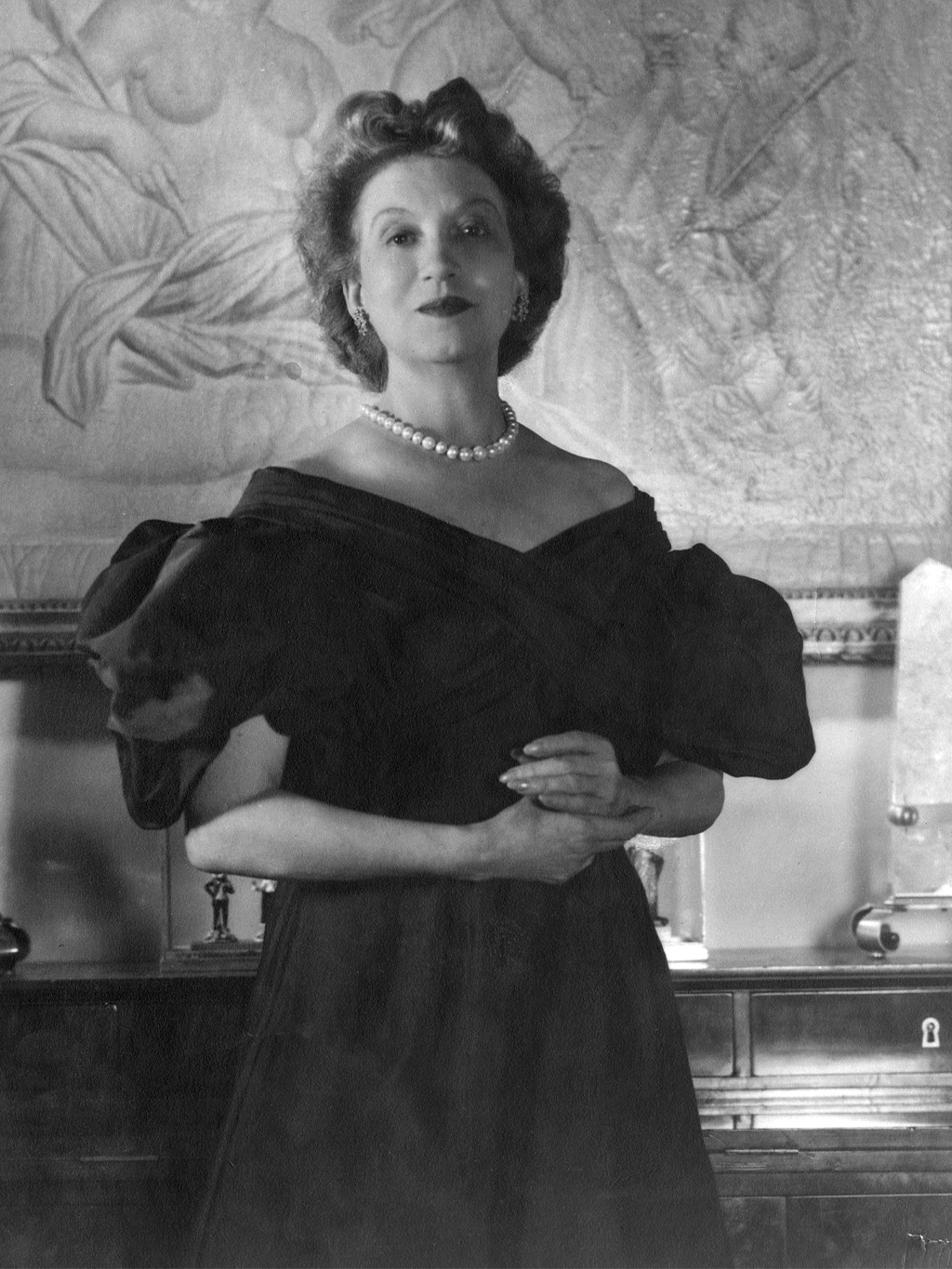
"While turn-of-the-century actresses like Sarah Bernhardt and Mary Pickford helped to bring red lipstick into vogue in 1912, it was Elizabeth Arden who gave it political power, elevating it to a symbol of rebellion and female empowerment," Curmi says. "On November 9, 1912, 20,000 women took to the streets of New York to advocate for the right to vote. Elizabeth Arden, a dedicated suffragette herself, opened the doors of her New York spa to hand out her Venetian Lip Paste and Venetian Arden Lip Pencil, before joining the suffragettes marching down Fifth Avenue as a sign of solidarity. The most striking sight was the bold red color on the women’s lips."
Curmi says it was a bold and effective tool due to the perceptions that surrounded red lipstick at that time. "Red lips were still considered illicit and immoral at the time, so the women wore them in unison as a rebellious emblem of emancipation and defiance," she says. "In response, leaders of feminist movements such as Elizabeth Cady Stanton and Charlotte Perkins Gilman began sporting red lips as a symbol of female empowerment. Since then, red lipstick has mirrored resilient femininity."
Through this lens, red lipstick owes its grip on 20th-century beauty to Arden. "One of the first female entrepreneurs in 20th century America, Arden remarkably turned a $6000 investment into a billion-dollar brand. She opened the Red Door Spa on Fifth Avenue in New York City in 1910 at a time when makeup and cosmetics were considered improper. She was instrumental in changing how the world thought about beauty—the ultimate influencer," Curmi says.
"While the original Venetian Lip Paste and Lip Pencil products are no longer in production, our iconic red lipsticks remain an important part of our product portfolio to this day," Curmi says. "Our cult-favorite Elizabeth Arden Lip Color Lipstick in Red Door Red best matches the shade worn by the suffragettes over 100 years ago. Red Door Red is a universally flattering hue and remains one of our most popular shades globally!"
The 1920s
Parsons says this was the era that brought red lipstick into the mainstream consciousness, making it seem accessible and trendy for young people during that time. It was thanks, in part, to turn-of-century actresses like Mary Pickford, who regularly donned a bold, red lip. "What changed the perception of lipstick was the flappers and 1920s Hollywood," she says. "The jazz age and the youth during that time completely rebelled against the older morals. They cut off their hair, wore knee-length skirts, and of course lots of makeup. It was a wonderful time for the world of cosmetics after the clean-girl Victorian and Edwardian eras."
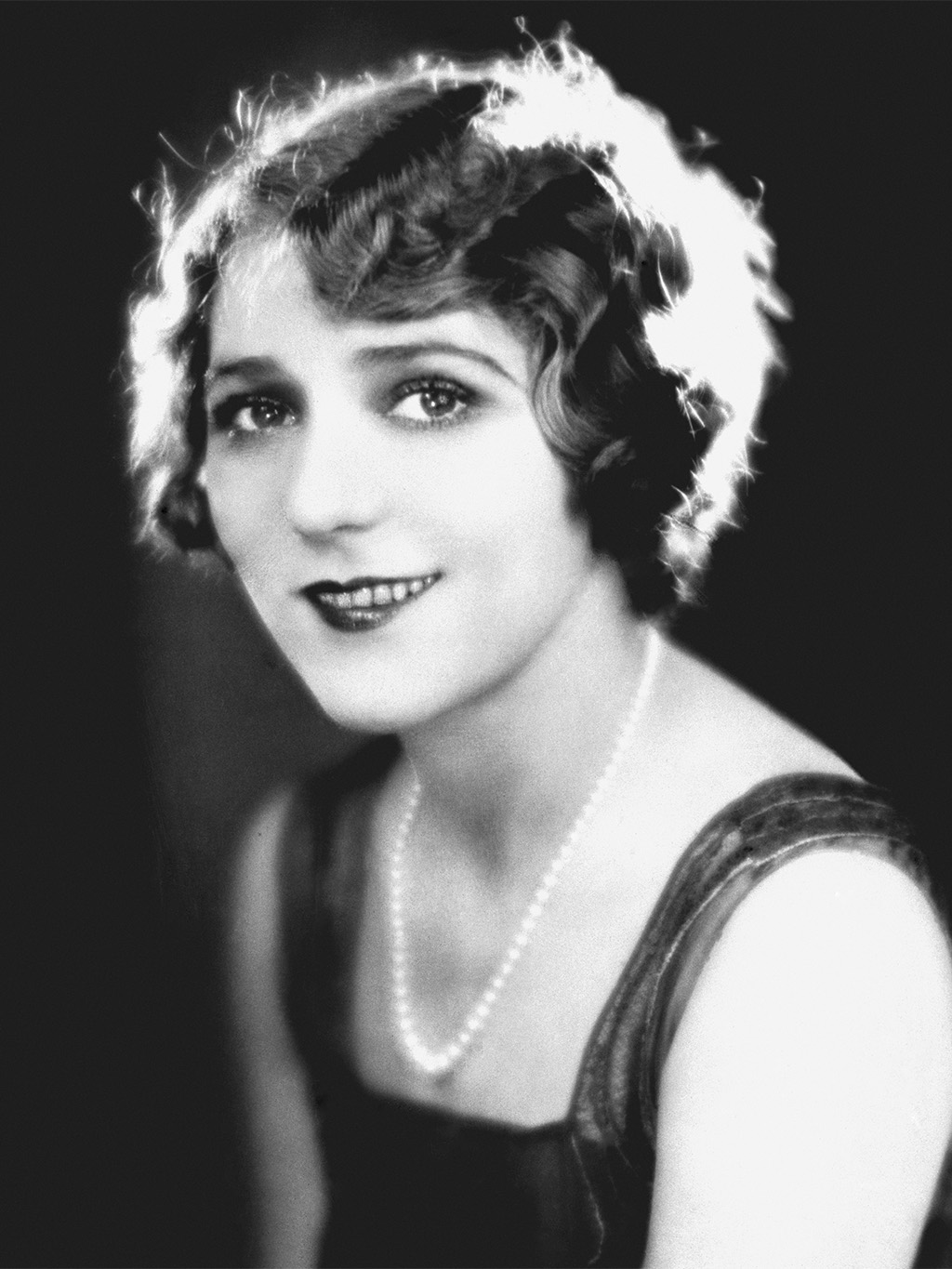
The 1940s
This is the era that Parsons finds particularly interesting in regard to the history of red lipstick. When the U.S. entered WWII, red lipstick was again interpreted as more than a cosmetic—it was a political stance. "I find it fascinating that red lipstick had become a woman’s patriotic duty during WWII," she says. "The story goes that Adolf Hitler hated the cosmetic, so allied forces used it as a statement against fascism. There were even colors from Elizabeth Arden like Montezuma Red and Victory that were meant to match the women’s uniforms worn in the military. During this time, all ads pointed toward taglines like 'Keep your beauty on duty!'"
Elizabeth Arden played a role during this era, too. "Wearing lipstick on duty became standard protocol for women in the armed forces, as well as nurses and volunteers throughout the war," Curmi says. "During World War II, the Marine Corps even commissioned Elizabeth Arden to create a tube specifically designed for women in service—1941’s vibrant, victorious Montezuma Red—which was issued in the official military kit alongside nail polish and matching rouge."
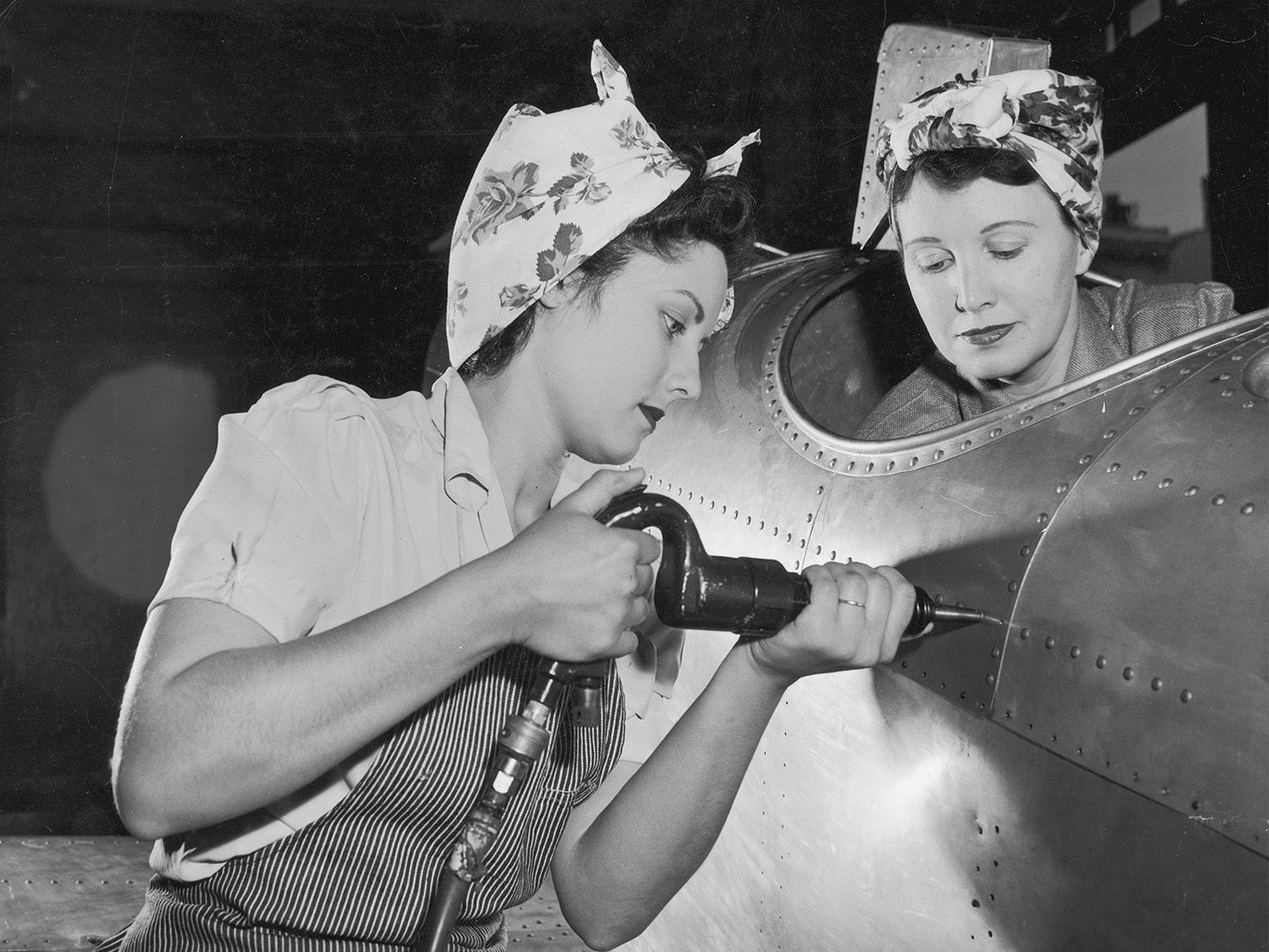
The 1990s
We can't talk about red lipstick without talking about iconic moments in the '90s, particularly when Madonna adopted a specific shade of red to wear on her Blonde Ambition tour. It was MAC's Russian Red ($22), a highly pigmented true blue-red. "That color defined the era," Parsons said. It was "the intense matte red lipstick that turned MAC into a global cosmetics company that changed the beauty industry!"
Want to play your own part in red lipstick's enduring history? Shop some favorites below.
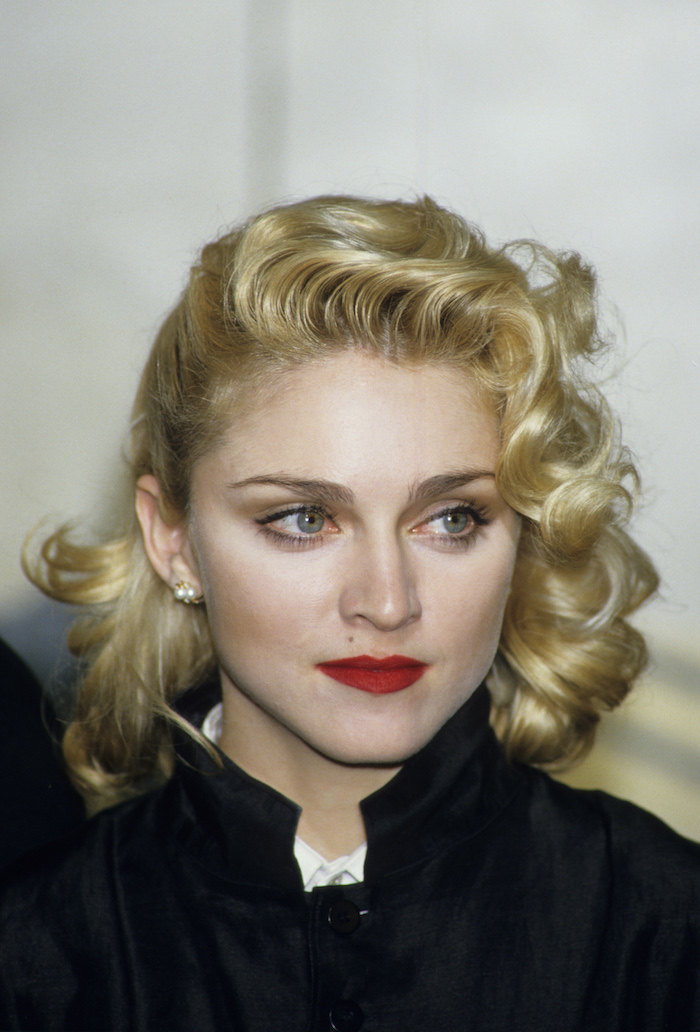
10 of the Best Red Lipsticks
Next, From Cher's to Bianca Jagger's, These Are the Most Iconic '70s Makeup Looks

Kaitlyn McLintock is a Beauty Editor atBest Knockoff Luxury Clothing . She has 10 years of experience in the editorial industry, having previously written for other industry-leading publications, like Byrdie, InStyle, The Zoe Report, Bustle, and others. She covers all things beauty and wellness-related, but she has a special passion for creating skincare content (whether that's writing about an innovative in-office treatment, researching the benefits of a certain ingredient, or testing Wholesale Replica Bag and greatest at-home skin device). Having lived in Los Angeles, California, and Austin, Texas, she has since relocated back to her home state, Michigan. When she's not writing, researching, or testing beauty products, she's working through an ever-growing book collection or swimming in the Great Lakes.
